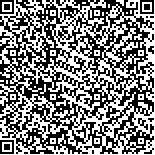| 段连香,郑 坚,赵爱光.中医药辨证治疗对老年晚期胃癌预后影响的同期对照研究[J].肿瘤学杂志,2018,24(8):800-807. |
| 中医药辨证治疗对老年晚期胃癌预后影响的同期对照研究 |
| Efficacy of Traditional Chinese Medicine Dialectical Therapy in Treatment of Elderly Patients with Advanced Gastric Cancer |
| 投稿时间:2017-04-28 |
| DOI:10.11735/j.issn.1671-170X.2018.08.B010 |
|
 |
| 中文关键词: 老年 晚期胃肿瘤 中医药 化疗 生存期 毒副反应 |
| 英文关键词:elderly advanced gastric cancer traditional Chinese medicine(TCM) chemotherapy overall survival toxicity and adverse events |
| 基金项目:上海市中医药事业发展三年行动计划项目(ZY3-CCCX-3-2003) |
|
| 摘要点击次数: 2950 |
| 全文下载次数: 575 |
| 中文摘要: |
| 摘 要:[目的] 评价中医药辨证治疗对年龄≥65岁老年晚期胃癌患者预后的影响。[方法]采用非随机同期对照研究,以老年晚期胃癌病例总生存期(OS)为主要疗效观察指标,并预设分层,化疗亚组(中医药辨证治疗+化疗组、化疗组)和非化疗亚组(单纯中药组、最佳支持治疗组),运用Cox比例风险回归模型分析影响各组老年晚期胃癌生存期的因素,在基线均衡的条件下应用Kaplan-Meier法估算中位生存期,组间差异采用Log-rank 进行显著性检验。两组的毒副反应发生率采用χ2检验进行比较。[结果] 共有255例老年晚期胃癌病例纳入本项研究,全组分析:中药组中位OS较非中药组延长(14.60个月 vs 8.68个月,P<0.001);Cox多因素分析显示腹膜转移(P=0.016)、放疗(P=0.031)、中医药辨证治疗(P<0.001)是老年晚期胃癌总生存期的独立影响因素。以化疗因素分层分析,化疗亚组中中医药辨证治疗+化疗组93例,化疗组81例,中医药辨证治疗+化疗组中位OS较化疗组延长(14.79个月vs 9.01个月,P<0.001);Cox多因素分析显示,转移部位数目(P=0.031)、中医药辨证治疗(P=0.001)是化疗亚组老年晚期胃癌总生存期的独立影响因素。中医药辨证治疗+化疗组白细胞减少(P=0.006)、中性粒细胞减少(P=0.010)、血小板减少(P=0.030)、出血(P=0.021)、恶心呕吐(P=0.036)、发热(P=0.020)的发生率均低于化疗组。非化疗亚组中单纯中药组32例,最佳支持治疗组36例,单纯中药组中位OS较最佳支持治疗组延长(11.11个月 vs 6.05个月,P=0.003)。Cox多因素分析显示,中医药辨证治疗(P=0.003)是非化疗亚组老年晚期胃癌总生存期的独立影响因素。[结论]中医药辨证治疗、放疗、腹膜转移、转移部位数目是影响老年晚期胃癌总生存期的独立预后因素。中医药辨证治疗可延长老年晚期胃癌患者的生存期,降低白细胞减少、中性粒细胞较少、血小板减少、恶心呕吐等毒副反应的发生率。 |
| 英文摘要: |
| Abstract:[Objective] To assess the efficacy of traditional Chinese medicine dialectical therapy in treatment of elderly patients with advanced gastric cancer. [Methods] Two hundred and fifty five patients aged ≥65 with advanced gastric cancer were enrolled in this non-randomized concurrent controlled trial. The patients were stratified in subgroups:there were 128 cases in TCM group and 127 in non-TCM group;there were 174 in chemotherapy group(93 in TCM+chemotherapy subgroup,81 in chemotherapy subgroup) and 81 in non-chemotherapy group(32 in pure TCM subgroup,36 in best support subgroup and 13 cases were excluded). The primary endpoint was overall survival(OS). Survival trends adjusted for clinical and demographic factors was determined by multivariate Cox-regression analysis;the difference in survival time was assessed by Kaplan-Meier curves and Log-rank test;the incidence of toxicity and adverse events was compared by χ2 test.[Results] The median OS was 14.60 months in the TCM group compared with 8.68 months in the non-TCM group(P<0.001). Cox regression analysis suggested that peritoneal metastasis(P=0.016),radiotherapy(P=0.031) and the TCM treatment(P<0.001) were independent prognostic factors. The median OS was 14.79 months in the TCM+chemotherapy subgroup compared with 9.01 months in the chemotherapy subgroup(P<0.001). Cox regression analysis suggested that the number of metastatic sites(P=0.031) and the TCM treatment(P=0.001) were independent prognostic factors respectively. The incidence of leucopenia(P=0.006),neutropenia(P=0.010),thrombocytopenia(P=0.030),bleeding(P=0.021),nausea and vomiting(P=0.036) and fever(P=0.020) in the TCM+chemotherapy subgroup were lower than those in the chemotherapy subgroup. The median OS of pure TCM subgroup was longer than that in the best support subgroup(11.11 months vs 6.05 months,P=0.003). Cox multivariate analysis showed that TCM treatment was independent prognostic factor(P=0.030). [Conclusion] TCM compound syndrome differentiation treatment,radiotherapy,peritoneal metastasis and the number of metastatic sites are the independent prognostic factors of elderly patients with advanced gastric cancer. Chinese medicine syndrome differentiation treatment can prolong survival and reduce adverse events of patients. |
|
在线阅读
查看全文 查看/发表评论 下载PDF阅读器 |